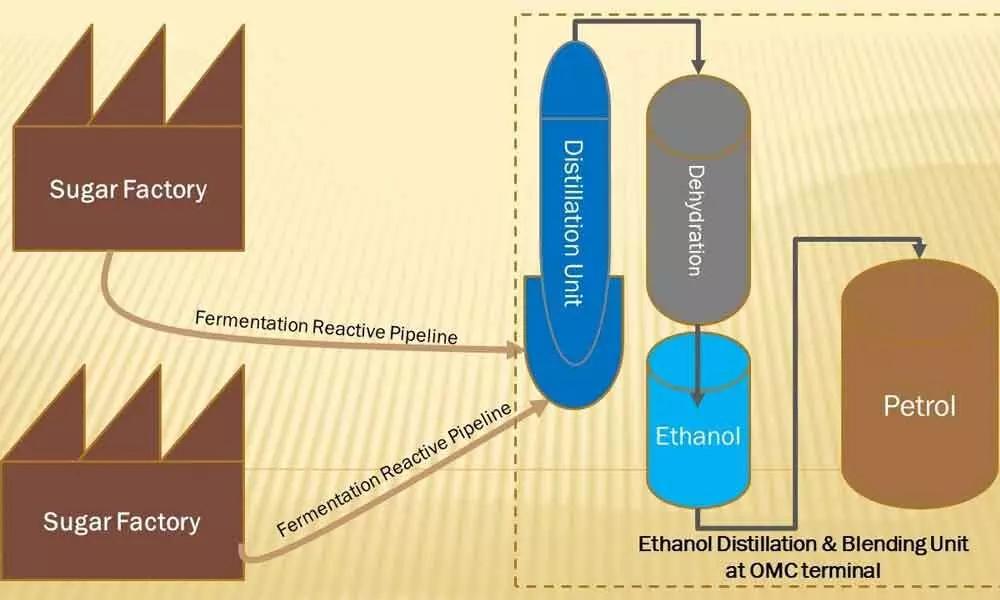Tirupati: New technology to end relentless search for ethanol

The conceptual picture of the ‘Reactive Pipeline Technology’ of ASN Fuels and IIT Tirupati
Indian start-up ASN Fuels Pvt Ltd and IIT Tirupati’s joint research helps identify ways to bring down cost of production of ethanol
Tirupati: A Bengaluru-based start-up – ASN Fuels Pvt Ltd in collaboration with IIT-Tirupati has been working on trying new avenues to produce ethanol from agricultural waste called as lingo-cellulosic biomass.
It has been promoted by Hindustan Petroleum Corporation Limited (HPCL) towards fulfilling the mandate of the Government of India to all the oil manufacturing companies (OMCs) for 20 per cent ethanol blending in petrol by 2025.
The objective of the government was to reduce dependence on fossil fuels thereby reducing effective greenhouse gas emissions and reducing oil imports saving huge foreign exchange to the country's exchequer.
Explaining the details to The Hans India, Associate Professor of Chemical Engineering at IIT Tirupati Dr Sunil Kumar Thamida who has been associated with the ASN Fuels as a consultant scientist has said that they have nearly achieved their target.
Following the requirement of the government to achieve 20 per cent addition of ethanol in petrol which is only five per cent as of now, they have thought of a revolutionary and innovative idea of minimising overall production cost of ethanol. Agricultural produce like broken grains, corn seeds and sugar factory by-products like molasses formed the raw material for first generation bioethanol, he said.
Later, they moved to corn cobs, rice husks which are Agri-Industry waste or technically lignocellulosic biomass as raw material for 2G bioethanol. In the midst of pilot plant development at Tirupati, scientists carried out in-depth research successfully producing ethanol from fermentable sugars in the pipelines.
After 'loop reactor technology' was filed for patent by ASN Fuels which is a long serpentine tubular reactor wherein fermentable sugars are converted to ethanol in the presence of brewer's yeast, during the further research the 'Reactive Pipeline Technology' emerged following the initiative of ASN Fuels Chairman DM Giri.
Dr Sunil Kumar said that this technology has emerged as a game changer for both sugar factories and grain based distilleries. "At our pilot plant, we have also provided intermittent thermal equalisers to maintain the required pipeline temperature and also to scrub the reactively generated carbon dioxide which can be bottled and sold," he maintained.
In future, mega refineries can be established in OMC depots as a hub to receive the incoming fermented broth from various sugar factories nearby and can be distilled to meet the 99.6 per cent pure ethanol blending requirement. This also saves about Rs 250-300 crore annually on logistics cost of ethanol transportation to all the OMC depots across the country. He said that a National Ethanol Reactive Pipeline Grid is proposed which can free the oil quest from the geopolitical clutch.










